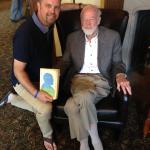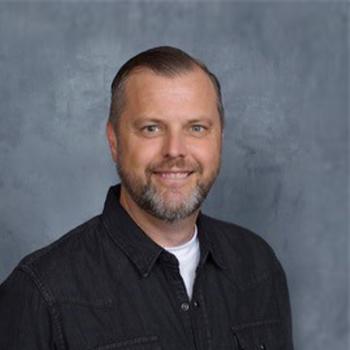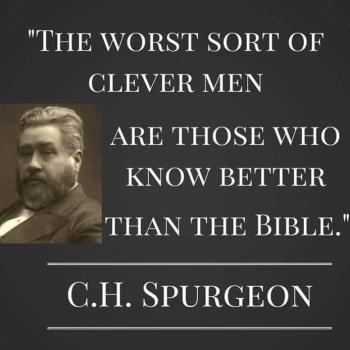What does the Bible have to say about Homosexuality being a sin? Compromising God’s Word or Condemning homosexuals…could there be a third option?
What does the Bible have to say about homosexuality?
The spring of 2004 was full and weighty when I was invited with a group of local pastors to a pastors’ breakfast at Focus on the Family. The head of a pro-gay activist group was coming to town and demanded a meeting with Dr. Dobson, the founder of Focus. Dr. Dobson was informed that if he did not meet with the activist, Focus would be picketed to the point of complete disruption. Dr. Dobson refused the meeting but, instead, asked Colorado Springs pastors to come meet with him to discuss the issue of homosexuality.
Every church in America faces this issue. How do we talk to gays? Even more pressing, what do we do with people who believe it is okay to be gay yet want something to do with the church?
Colorado Springs’ approach has been to stand at a distance and shoot. The left shoots the right, then the right shoots back, usually using the media to convey our deep-felt beliefs and opinions of how people ought to live and treat one another. We buy media rights and blast one another from a distance. This seems to be effective … at least, effective enough to create explosions. The collateral damage is more than the Church should be willing to pay, but we often do not consider that. Christians just blast away for the sake of what we believe is right.
Over the years, I have watched the right and left of Colorado Springs attack one another over the issues of abortion, gay marriage, the environment, and more. While this sort of approach is sometimes necessary, the more we move into a post-god, post- church society in the United States and across the world, this strategy is becoming less and less effective for believers. Vanguard desires to find a new way to engage an old argument.
I have no problem with strong stances on moral issues. I believe we have a mandate from God to be committed to the moral issues of our day and to live out these convictions. But, with that said, how do we go about it?
In the spring of 2004, many ideas are floating around for staving off the attack of the liberals. Many of these ideas would not contribute to building relationship with unbelievers. Instead, they would just push people further away from us.
So, at that pastors’ meeting at Focus, I raised my hand and asked to share my thoughts when given the opportunity. Dr. Dobson acknowledged me and allowed me to speak. I knew I needed to establish my credentials before sharing deep convictions about this subject.
I told Dr. Dobson that I grew up listening to him on the radio just like so many others had. I had deep respect for him and appreciated his years of integrity in leading our city, country and world. I told Dr. Dobson I graduated from Liberty University under the leadership of his friend, Dr. Jerry Falwell. I married my college sweetheart, then we moved to Dallas to attend Dallas Theological Seminary, where I studied under the presidential leadership of Dr. Chuck Swindoll, another of his trusted friends.
I reassured Dr. Dobson and the other pastors that I was as conservative as they came in my theology. But—I take a deep breath—I suggested that it was time for us to try some new approaches in order to demonstrate what it looked like to be a “friend of sinners” as Jesus was.
I proposed that Colorado Springs have a community discussion and invite both sides to the table. We needed to bring the issues out of the public arena into a private setting where we could add names and faces to the issues. The only way to get a burden for the lost is to spend time with them. A community discussion would enable us to do this. We could begin to build real relationship with the community by showing love, respect, and dignity to people even while disagreeing with them. Everyone deserves this because we are created in the image of God. Regardless of our position or stance on issues, I say we firmly believe that we can’t influence people if we are not in relationship with them.
Dr. Dobson asked me if I believe and teach that homosexuality is a sin. Both of these I do. However, I added, “Homosexuality is a sin but not the sin.” Dr. Dobson then asked me, “Do you have children?” I had four young children at the time. He looked at me as if I were an enigma then moved on to other questions. I didn’t know what to think except that he must have not liked my idea, so I sat the rest of the meeting in silence.
After the meeting was over, one of the leaders of Focus on the Family asked for my cell number. Later that day, Tom Minnery called saying that the gender department of Focus would like to meet with me and see if this community discussion idea could work.
So Vanguard and Focus worked together to try something new: engaging the “other side” in Colorado Springs, instead of just shooting at them. Focus prepared and filled the discussion panel with three leaders opposed to gay marriage; I identified three speakers to address this issue from a pro-gay perspective, including Christians who did not believe that homosexuality is a sin. There was a pastor, the interim leader of the Pikes Peak Gay and Lesbian Center, and a chaplain of a local college.
The night of our big event turned into a media frenzy as our city came together in our church to discuss the divisive issue of homosexuality. About twelve hundred people were present for this electrifying evening. The media was stumped by our civility toward one another. Gay couples came in holding hands just as straight couples do. Conservatives sat next to cross-dressers; gay activists sat next to soccer moms. Polarizing beliefs charged the atmosphere as I moderated the discussion between the two sides of the panel.
What’s the point in doing this?
There is one reason and one reason only: to be a friend of sinners like Jesus.
To the world the Church is not only irrelevant, it is downright offensive. People—gays included—are spiritual; they are often even interested in Jesus. But their view of church and religion is becoming increasingly negative with every passing year. The judgmental spirit of religion interwoven with the hypocrisy of religious leaders leaves us with baggage greater than the world can endure or desire. We have lost our way in loving the lost because we are sidetracked with fear that they might get an upper hand on us regarding certain moral issues in our day.
However, on this brisk fall evening, our city was welcomed into the church—and the city came. A respectful discussion between both sides took place. Focus demonstrated incredible compassion and grace for the people across the aisle even as they articulated the biblical view that homosexuality is a sin. The night was amazing; years later we did this event again with the current President of Focus on Family, Jim Daly, a dear friend.
The tide and temperature of our city began turning this evening. As we laid down our semiautomatic media machine guns, we came to the table and talked like sensible people. We actually listened to one another, heard one another. And Christians learned to love the people we meet more than our good, godly opinions about them.
Something amazing happens when Christians replace fear and judgment with relationship. We cannot change our view of people if we don’t get to know them. We cannot influence people if we are not in relationship with them. And we cannot effect change in our society if we refuse to listen to anyone who doesn’t agree with everything we say.
Jesus never shouted at “sinners”; instead, He engaged them in relationship. The only times Jesus ever got angry were when religiously hypocritical, judgmental people got in the way of others experiencing God. And sometimes, we must admit, we as Christians do this.
It is time for us to start getting the point of evangelism— befriending sinners like Jesus!
Jesus loves people. He died for them—all of them, including the ones who have political and moral beliefs that run counter to His Word.
People begin to experience His love when they experience our love. Seems a mighty high calling to love the “other side” when we so thoroughly disagree with them. Yet, this is what His Word calls us to do. It is an overwhelming challenge when we look at it from the big picture perspective. But, really, it starts quite simply: with relationship.
We love people when we begin to look at the whites of their eyes, hear their stories, and care about them. Such an approach is worlds away from blasting those who are on the opposite side of the aisle.
What’s the POINT?
- Do you look for ways to relate to unbelievers around you, or do you tend to isolate yourself from them?
- How does your church fight the judgmental religious spirit in your city?
What risks do you take to reach out to people who are different from you?
This is an excerpt taken from chapter 6 of the book FRIEND OF SINNERS: TAKING RISKS TO REACH THE LOST.
If you would like to read more about how to take risks to reach the lost without compromising what God’s Word teaches, go to:
amazon.com/author/pastorkelly
Let’s love others into a real relationship with Jesus Christ, their eternities are dependent upon it.
Blessings,
Pastor Kelly













